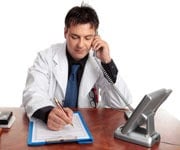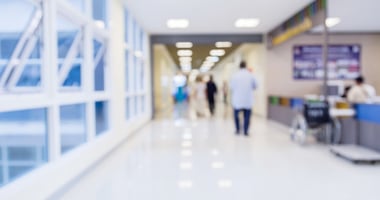Quickly assessing survivors to see who needs immediate mental health services could benefit victims...
SAMHSA Phone App Helps Responders After Disasters
 |
“It has simple but effective tips to help address problem-solving with survivors, as well as key reminders for supervisors,” said tech expert John Luo, M.D., a clinical professor of psychiatry and senior physician informaticist at the David Geffen School of Medicine at UCLA.
The SAMHSA Disaster App is available in iPhone/iPad, Google Android, and Blackberry versions. Content includes brief refreshers on psychological first aid, suicide prevention, disaster mental health, and self-care. One section discusses the special aspects of working as part of emergency operations following terrorist events. A search function allows users to locate behavioral health services (so far, mostly substance abuse services) based on ZIP code, city and state, or address. There are also postdeployment guides for responders, their families, and supervisors. All sections contain links to more extensive information on SAMHSA and other websites.
“The app also downloads content when started in order to provide regular updates, which is a great feature,” said Luo in an interview. “I highly recommend that all behavioral health providers download it now to be better prepared in the event of a disaster.”
For more in Psychiatric News about how being prepared can help psychiatrists when disaster strikes, see: “Psychiatrists Act Quickly After Bombings In Boston.” Additional information can be found in the book Disaster Psychiatry Readiness, Evaluation, and Treatment by American Psychiatric Publishing.
(Image: Alexey Stiop/Shutterstock.com)





